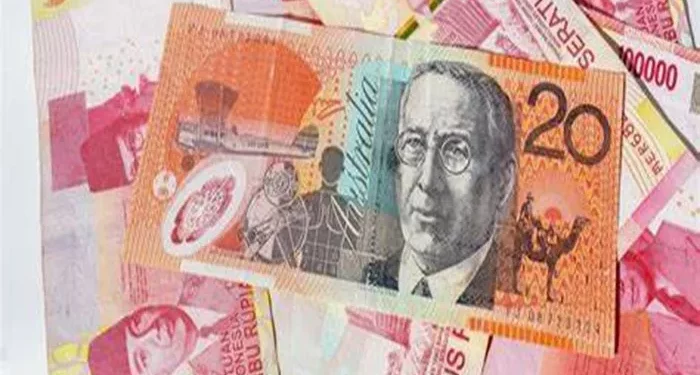Currency conversion is a common task for individuals and businesses engaging in international transactions. Whether you’re traveling, making an overseas purchase, or investing in foreign markets, knowing where and how to convert your U.S. dollars (USD) to Australian dollars (AUD) is crucial. This article will provide a comprehensive guide on where you can convert USD to AUD, the factors influencing exchange rates, and tips for making a successful conversion.
Understanding Currency Conversion
Currency conversion involves exchanging one currency for another based on the current exchange rate. The exchange rate is the value of one currency expressed in terms of another currency. For example, if the exchange rate is 1 USD = 1.5 AUD, it means that one U.S. dollar is equivalent to 1.5 Australian dollars.
Factors Influencing Exchange Rates
Several factors can impact exchange rates, making them volatile and subject to frequent changes. Some of the key factors include:
Economic Data: Economic indicators such as GDP growth, inflation rates, and employment figures can influence currency values. Stronger economic data often leads to a stronger currency.
Central Bank Policies: Central banks, such as the Federal Reserve in the U.S. and the Reserve Bank of Australia, set monetary policies that can affect currency values. Interest rate decisions, for example, can cause currencies to appreciate or depreciate.
Geopolitical Events: Political stability, trade agreements, and international relations can all impact currency values. Uncertainty or turmoil in a country can lead to a weakening of its currency.
Market Sentiment: Speculation and investor sentiment can also play a role in currency movements. Market participants may buy or sell currencies based on their expectations for future economic conditions.
Where to Convert USD to AUD
There are several options available for converting USD to AUD, each with its own set of pros and cons. Here are some of the most common methods:
1. Banks
Banks are a traditional and trusted option for currency conversion. Most major banks offer currency exchange services, allowing you to convert USD to AUD through their online banking platforms, at their branches, or over the phone.
Pros
Convenience: Banks offer a convenient and secure way to convert currencies.
Accessibility: They are widely available and accessible to most people.
Diverse Services: Banks often provide a range of services, such as wire transfers, foreign checks, and travel money cards.
Cons
Fees: Banks may charge fees for currency conversion, which can vary depending on the bank and the type of service.
Exchange Rates: Banks may offer less competitive exchange rates compared to other options.
When using a bank for currency conversion, it’s essential to compare different banks and their fees to find the most cost-effective option.
2. Online Currency Converters
Online currency converters have become increasingly popular due to their convenience and ease of use. These platforms allow you to convert USD to AUD quickly and easily using real-time or near real-time exchange rates.
Pros
Convenience: Online converters are accessible from anywhere with an internet connection.
Real-Time Rates: They often provide real-time or near real-time exchange rates.
No Fees: Some online converters may not charge fees for conversions.
Cons
Security Risks: There is a risk of fraud and scams when using online converters, especially if the platform is not reputable.
Limits: Some online converters may have limits on the amount of currency you can convert.
When using an online converter, ensure that the platform is reputable and secure. Check reviews and ratings to ensure that it’s a trustworthy option.
3. Currency Exchange Kiosks
Currency exchange kiosks are physical locations where you can convert USD to AUD. These kiosks are often found in airports, tourist areas, and city centers.
Pros
Convenience: Kiosks are often located in convenient locations for travelers.
No Appointment Needed: You can visit a kiosk without needing an appointment.
Cons
Fees: Kiosks may charge higher fees compared to other options.
Exchange Rates: They may offer less competitive exchange rates.
Limited Hours: Kiosks may have limited operating hours, which can be inconvenient for some people.
When using a currency exchange kiosk, compare different locations and their fees to find the most cost-effective option.
4. Foreign Exchange Brokers
Foreign exchange brokers specialize in currency conversion and can offer competitive exchange rates and fees. They often work with individuals and businesses to facilitate large currency transfers.
Pros
Competitive Rates: Brokers can offer more competitive exchange rates compared to banks and kiosks.
Personalized Service: They can provide personalized service and advice based on your specific needs.
No Fees or Low Fees: Some brokers may not charge fees or may offer fee-free transfers for large amounts.
Cons
Complexity: Working with a broker may involve more complexity and paperwork compared to other options.
Time: It may take longer to complete a transaction through a broker.
When using a foreign exchange broker, ensure that they are reputable and regulated by a relevant financial authority. Check their credentials and reviews to ensure that they are a trustworthy option.
5. Travel Money Cards
Travel money cards are prepaid cards that allow you to load a specific amount of foreign currency onto the card. You can then use the card to make purchases, withdraw cash, and pay for services in the foreign currency.
Pros
Convenience: Travel money cards are easy to use and can be used like a debit card.
Security: They offer a secure way to carry foreign currency without the risk of carrying cash.
Competitive Rates: Some travel money cards offer competitive exchange rates.
Cons
Fees: Cards may charge fees for loading, reloading, withdrawing cash, and making purchases.
Limited Options: Not all travel money cards are available in all countries.
When considering a travel money card, compare different cards and their fees to find the most cost-effective option. Also, check if the card is accepted in the country you’re visiting.
Tips for Successful Currency Conversion
When converting USD to AUD, here are some tips to ensure a successful transaction:
Compare Options: Don’t settle for the first option you find. Compare different methods and their fees to find the most cost-effective option.
Check Exchange Rates: Pay attention to exchange rates and monitor them over time. This can help you identify the best time to convert your currency.
Consider Fees: Be aware of any fees associated with the conversion, such as transaction fees, withdrawal fees, or reload fees. Factor these fees into your calculations to determine the total cost of the conversion.
Verify Credentials: When using an online converter or broker, ensure that they are reputable and regulated by a relevant financial authority. Check their credentials and reviews to ensure that they are a trustworthy option.
Stay Informed: Keep up-to-date with economic news and events that may impact exchange rates. This can help you make informed decisions about when to convert your currency.
Conclusion
Converting USD to AUD is a common task for individuals and businesses engaging in international transactions. With several options available, it’s essential to compare different methods and their fees to find the most cost-effective option. By considering factors such as exchange rates, fees, and convenience, you can make a successful currency conversion that meets your needs.
Remember, currency conversion involves risks, and exchange rates can be volatile. It’s important to stay informed and monitor exchange rates over time to make informed decisions. By following the tips outlined in this article, you can ensure a successful and cost-effective currency conversion.
In summary, converting USD to AUD can be done through various methods, including banks, online converters, currency exchange kiosks, foreign exchange brokers, and travel money cards. Each method has its own set of pros and cons, and it’s essential to compare different options to find the most suitable one for your needs. By staying informed and considering factors such as exchange rates, fees, and convenience, you can make a successful currency conversion that meets your requirements.
Related topics:


































